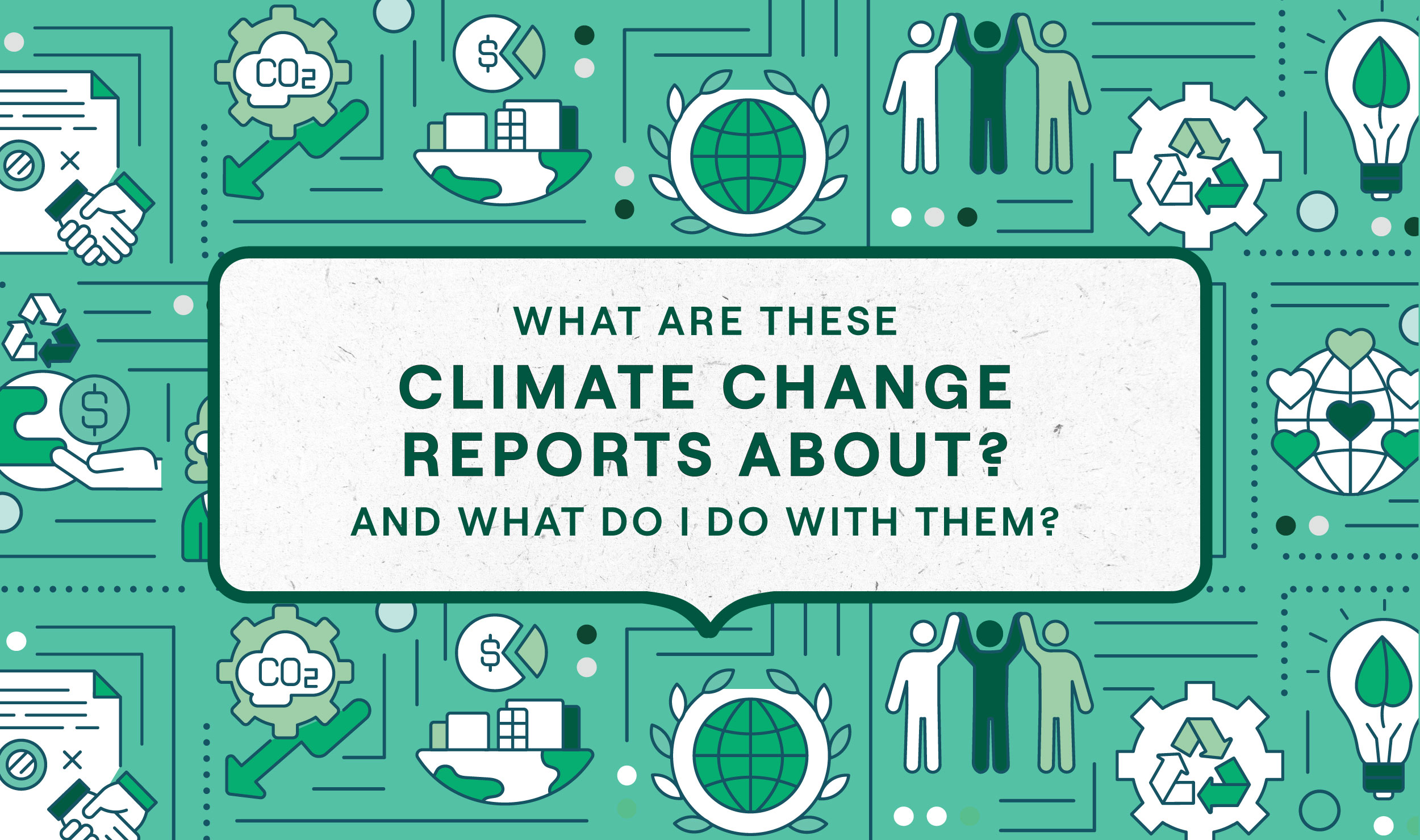Earlier this week, the Intergovernmental Panel on Climate Change (IPCC) released its latest Synthesis report. Once again, it made headlines–not least because UN Secretary General António Guterres called the report a “how to-guide to defuse the climate time bomb…a survival guide for humanity.”
At Seventh Generation we often receive questions on who writes these scientific reports, what’s in them, why they matter, and what to do with them once they are released. So let’s take a moment to unpack!
What’s this latest report about?
As the title names, this is a “synthesis” report – meaning it condensed and reviewed the last three major reports. It establishes an authoritative assessment of the science and economics of climate change – so it’s no surprise this report is making waves! In it, the authors warn that:
- Limiting global warming to 1.5 degrees Celsius by 2050 has become even more challenging due to the relentless increase in global greenhouse gas emissions. (The world has already warmed by 1.1 degrees after a century of burning fossil fuels and other contributing factors).
- This relentless increase has resulted in more frequent and severe extreme weather–such as wildfires, drought, record heat and blizzards. In the last decade, deaths from droughts, floods and storms were 15 times higher in highly vulnerable regions.
- If we want to limit warming to 1.5 degrees Celsius, we must immediately take action to create “deep, rapid and sustained greenhouse gas emission reductions across all sectors.” By 2030, emissions should be slashed nearly in half, which “will take a quantum leap in climate action,” according to Secretary General Guterres.
- This will require deep reductions in fossil fuel use, leaving an electricity system powered mainly by renewables, and widespread electrification. The good news is, renewables are outperforming fossils and carbon removal in every way and have gotten cheap, scalable and storable much faster than economists predicted.
- Guterres went on to say all governments must be “hitting the fast-forward button” on their net zero deadlines–urging developed nations like the United States to set a goal of 2040 or earlier. (President Biden has set a less ambitious goal of 2050.) Even President Biden’s own climate envoy, former Senator John Kerry, noted that “Today’s message is clear…we are making progress, but not enough. We have the tools…but we must take advantage of this moment to act now.”
What are these reports, and who writes them?
The IPCC was founded more than 30 years ago as a United Nations panel of 195 member governments. It is made up of leading scientists who advise policymakers with regular, “gold standard” scientific assessments on the current state of knowledge about climate change. These scientists, in turn, select thousands of experts–on agriculture, transportation, energy, and more topics that have an impact on climate change–who convene in working groups. These working groups review all relevant scientific publications–one of the biggest “peer review” processes in the scientific community–and ultimately, produce the reports that you see.
Because these reports are so exhaustive and the work of thousands go into them, it’s no surprise that the IPCC is an internationally accepted authority on climate change, with its findings endorsed by leading climate scientists and entire governments. Those findings are also cited by media, non-profits, businesses and others who rely on factual, peer reviewed, evidence-based information to make decisions about climate change. Its work carries so much respect and authority that the IPCC shared the 2007 Nobel Peace Prize with one Al Gore, for their contributions to the understanding of climate change.
Why does this report matter? What should I do with it?
This report, and past/future reports matter because they advise policymakers on what measures to take to decarbonize our economy and secure a safe, healthy future for today’s communities and the next seven generations to come. Policymakers need expert guidance so they understand the options, the costs and benefits of it, the stakeholders involved, and then can make choices about how best to mitigate climate change and adapt to its consequences.
That’s why sharing the news about the IPCC report, or even this blog post, is important. Scientists are regarded by many as an independent, validated messenger. You probably know someone who is skeptical of climate change, or agrees that our planet is warming but hasn’t taken any action–such as signing a petition, writing a letter to the editor, or making a phone call to a legislator. Sharing this news could help move the needle with them, and inspire action.
You can also take action directly right now by calling on President Biden to declare a climate emergency.


